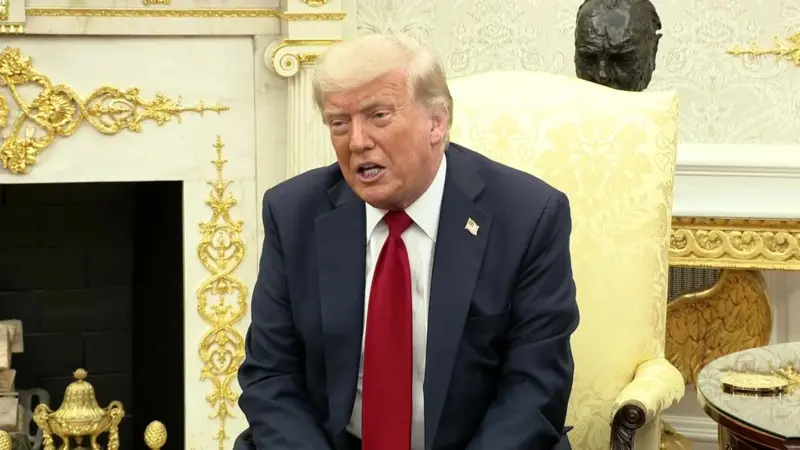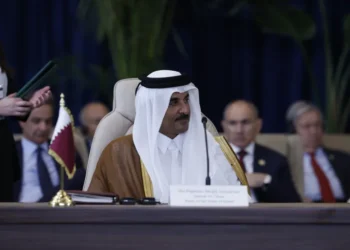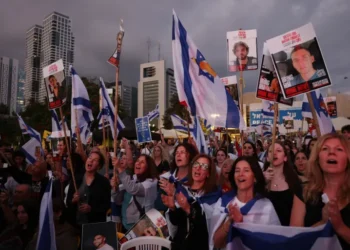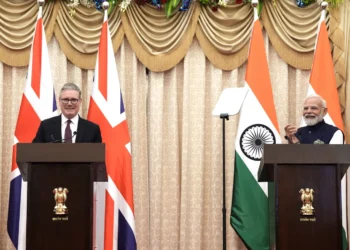Malaysian Foreign Minister, Mohamad Hasan has disclosed that US President Donald Trump will visit the Asian country.
According to Hasan, Trump will oversee a formal peace deal between Cambodia and Thailand on the sidelines of an Association of Southeast Asian Nations (ASEAN) summit. He told reporters, “Trump will visit the Malaysian capital of Kuala Lumpur on October 26 to witness the agreement.”
“During the summit, we hope to see the signing of a declaration known as the Kuala Lumpur Accord between these two neighbours to ensure peace and a lasting ceasefire.”
Mohamad Hasan
The 47th ASEAN Summit is due to take place in Kuala Lumpur from October 26 to 28, bringing together Heads of state from 10 Southeast Asian nations and other dialogue partners.
Before the announcement, it was unclear whether the US President would, in fact, attend this year’s ASEAN summit. Trump has been similarly non-committal about whether he will attend the Asia-Pacific Economic Cooperation (APEC) summit in South Korea the following weekend.
Also, Hasan said that Malaysia and the United States would serve as facilitators to “see a more extensive ceasefire deal” between Thailand and Cambodia, which will require “both sides to remove all landmines and withdraw their military machinery from their borders.”
He iterated that Malaysia and the US are facilitating efforts to secure an expanded ceasefire agreement between Thailand and Cambodia that they hope will be signed during a Southeast Asian summit later this month.
Thailand and Cambodia engaged in five days of combat in late July that killed dozens of people and displaced more than 260,000.
They agreed to a ceasefire only after mediation by Malaysia’s Prime Minister Anwar Ibrahim and pressure from US President Donald Trump, who threatened to withhold trade privileges unless they agreed on a truce.
Tensions have remained high since the truce, particularly after Thai soldiers were injured by land mines in August while patrolling a buffer zone between the countries.
Thailand accused Cambodia of laying new mines in violation of the ceasefire, which the government in Phnom Penh has strongly denied.
Thailand Prime Minister, Anutin Charnvirakul has said Phnom Penh must accept four conditions. They include removal of heavy weapons from the border, land mine clearance, assistance to curb cross-border crime and managment of sensitive border zones to avoid further conflicts.
Mohamad said that ongoing negotiations aim to broaden the ceasefire to include land mine clearance and withdrawal of heavy weapons.
Malaysia Hopeful Of A Signed Agreement
He expressed optimism that an agreement could be signed during the Association of Southeast Asian Nations summit October 26-28, which is expected to draw some two dozen global leaders.
Trump has instead largely taken credit for ending the five-day conflict in July that killed at least 43 people and displaced more than 300,000, in a dispute over unmarked sections of the Thai-Cambodian border.
The border spans more than 800km (500 miles) and is an ongoing area of dispute that has led to violent confrontations between Cambodia and Thailand in the past.
Despite the ceasefire, clashes persisted into September along a disputed segment of the border.
Cambodian Prime Minister, Hun Manet earlier this year nominated Trump for the Nobel Prize for his role in negotiating the deal and “in recognition of his historic contributions in advancing world peace.”
Trump’s attitude towards the Thai-Cambodian border conflict mirror his actions in the Middle East, where he took credit for a ceasefire deal this week between Israel and Hamas in Gaza.
The US President also led a gathering of world leaders in Egypt on Monday to oversee an official ceasefire signing ceremony, attended by leaders of about 20 countries.





















